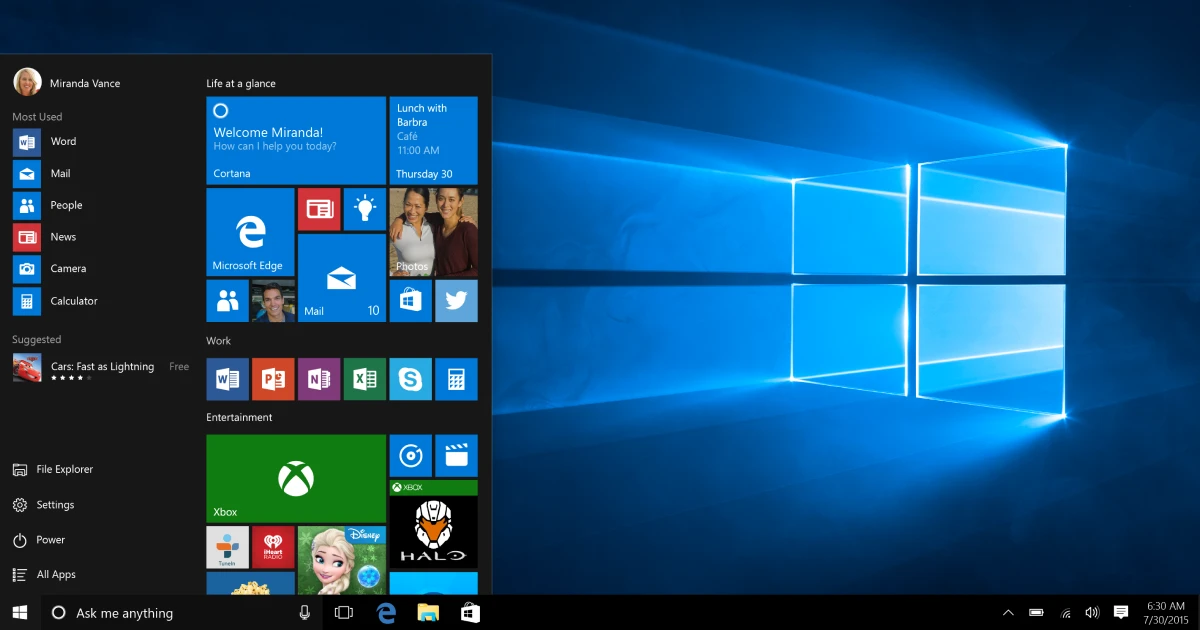Microsoft Dynamics vs Salesforce CRM: Navigating the CRM Landscape
Since the Industrial Revolution, we have been surrounded by technology and ways to make our lives easier. Think about, going shopping, we now have online shops that will deliver everything we need. And, having your own business or managing one is an industry that needs all the help we can get, so, CRM came into play and helped us deliver the best results.
What is Salesforce?
Salesforce is one of the most notorious and used CRM software tools that you can find in the industry. The smart solution is a cloud-based tool that can help you bring your business to the next level when it comes to keeping track of your customer and client relationships. With the integration of Salesforce CRM, you will have the ability to find possible clients more easily, so you will be able to drive more sales. Salesforce Customer 360 has all the needed features and integrations that can help you grow and scale your business across multiple industries.
Salesforce Features
- All-in-one platform – With Salesforce CRM you will have all the tools you need just in one place.
- AI automation – AI will help you automate processes and deliver a customized experience for your users, prospects, and possible clients.
- Sales and Marketing linked– With the integration of sales and marketing tools you can also simplify all your processes and deliver faster and better results. And once you have sales and marketing in the same place you will be on the same page with everything regarding the two industries (strategy, prospects, social media).
- Share information – Salesforce CRM allows you to automate the processes you can encounter and even use SalesGPT. With this feature, you can receive and send personalized messages, take notes, and summarize information.
- Salesforce Customer 360 – Salesforce CRM can allow you to see all the needed details and information regarding a client. It will be your history regarding a client, their business prospects, and whether they are suitable or not for your projects.
- Integrations – Slack, MuleSoft, and Heroku are some of the apps you can integrate with Salesforce customer relationship management.
- Lead Generation – Lead generation can come as a lifesaviour and Salesforce CRM can help you achieve that. With its campaign templates, personalized content, or easy management performance, you will have the ability to find more leads, faster than ever.
- Einstein Analytics – This feature will give you the ability to predict and foresee different analytics regarding your clients, workflow, and so on. With the power of AI and automation, you will always be one step ahead of everything.
What is Microsoft Dynamics 365?
Microsoft Dynamics 365 is a well-known platform that has surfaced in the sales industry since forever. Microsoft d365 stands for all the apps and digital solutions that Microsoft has created in order to simplify the whole process of managing and scaling a business properly.
Microsoft Dynamic 365 Features:
- Integration: In the case where you might be using other Microsoft products already, you might as well go for the Microsoft d365. The smart solution has the ability to seamlessly integrate other apps that might be the solution to your business automation.
- Data unification: Usually, companies are looking for a smart solution that is able to help them with data unification. And, this is where MS Dynamics 365 seems to excel. This feature helps you by centralizing all your data and shrinking the barriers that might come in your company’s collaboration and communication.
- Customer Insights: Create personalized experiences for your customers by combining data-backed information about their journeys with real-time analytics. Understand your customers by creating a complex profile from diverse data sources, boosting engagement with AI-powered algorithms, nurturing leads, and simplifying journey creation.
- Customer Voice: Your customer’s opinion is always important, and Microsoft Dynamics 365 knows it, as it offers the ability to create personalized surveys for your customers. This way, the sales team can understand their customers’ perception of their experience with the product or with the team. Even more so, we can discover customer sentiment, possible market trends, and other necessary metrics.
- Sales Automation: With this integration, you have the power to transform the sales process in no seconds. Using artificial intelligence tools, automation, and real-time data to close more deals, meet customer needs, and generate pitches or emails to accelerate the sales process.
- Sales Collabs: With this feature, collaboration has never been easier for your sales teams. Connect Microsoft Dynamics 365 with LinkedIn Sales Navigator. You’ll have the possibility to find new prospects with LinkedIn Sales Navigator and save the contacts directly into the Dynamics 365 CRM. This is also beneficial for understanding customer preferences to determine what type of content our users consume by tracking their online behavior.
- Predictive Analytics: Who doesn’t want to know the future? Well Microsoft D365 provides one of the most accurate features regarding predictive analytics. So, this way, the sales team can access predictive sales based on AI-powered analytics and data-backed information to build dashboards and analyze the sales team's performance.
- AI recommendations: Microsoft CRM has AI recommendations that will deliver better insights on your work, so, you will always be one step ahead.
- Workflows automated: The automation of repetitive tasks is what we all want, and Microsoft D365 will help you with that.
Microsoft Dynamics vs Salesforce CRM - Payment Plans
Salesforce Pricing
- Essentials $25 per user/ month
- Professional $75 per user/ month
- Enterprise $150 per user/ month
- Unlimited $300 per user/ month
Microsoft Dynamic 365 Pricing
- Sales Professional: $65 per user/month
- Sales Enterprise: $95 per user/month
- Sales Premium: $135 per user/month
- Microsoft Relationship Sales: $162 per user/month
- Customer Insights: $1700 per tenant/month
- Business Central Essentials: $70 per user/month – for small and medium businesses
- Business Central Premium: $100 per user/month – for small and medium businesses
Microsoft Dynamics 365 vs Salesforce CRM
Both Microsoft Dynamics 365 and Salesforce CRM are two great CRM software examples that can help you navigate and sustain your business more efficiently and effectively. After all, with the help of a CRM, we are able to eliminate all the repetitive and data-tracking tasks, so, sales and marketing people can focus on their meetings and human-to-human interactions.
When it comes to choosing the most suitable CRM for your business you need to take into account that both Microsoft D365 and Salesforce can help you grow your business. However, your needs and business differ, so based on this, you can decide which one suits you best.
1. Interface
Comparing the two digital platforms it is safe to say that if you are looking for a more modern and intuitive platform, Salesforce will be the one for you. The Salesforce interface is appealing and can seem more eye-catching compared to the digital interface that Microsoft D365 has.
2. Ease of Use
When it comes to the learning curve, both platforms have a steep learning curve that might need assistance along the way. Yet Salesforce presents an easier platform compared to the one Microsoft D365 has.
3. Integrations
When it comes to integrations Microsoft Dynamics CRM is integrated with all the other Microsoft products, such as MS Outlook, Excel, Word, Azure, OneDrive, and so on. At the same time, it also integrates with third-party platforms such as LinkedIn, which is quite surprising and amazing to see. On the other hand, Salesforce is integrated through third-party add-ons and has integrations such as Outlook, and Gmail.
4. Reporting and Analytics
Salesforce has focused on creating powerful analytics for sales and marketing activities. Its Einstein Analytics provides backed-data exploration, automated data insight, and personalized recommendations through the integration of AI-powered algorithms, as well as predictive analytics. However, Microsoft D365 provides one of the most accurate features regarding predictive analytics.
5. Features
When it comes to Microsoft Dynamics 365 CRM and Salesforce there it is hard to compare, as they are after all, each other’s primary competitors. For example, Microsoft CRM offers an on-site server, which for some companies comes as a must-have. Microsoft Dynamics 365 has mostly focused on the entire contact management flow and integrating all Microsoft products, creating an all-in-one platform. While Salesfroce has developed AI-powered tools to help its users manage their business more effectively.
So, both platforms great options and opportunities for your business. You can test them and see which one suits you best as both enterprise CRM systems have incredible features that can help us, but it’s up to you to decide which fits better for your business.
See More Comparisons With Microsoft Dynamics 365 and Salesforce:
- Microsoft Dynamics 365 vs Zoho CRM: Which CRM Software Is Better?
- Salesforce vs Monday.com CRM: Exploring CRM Integration with Project Management
- Salesforce vs Zoho CRM: How to Find the Perfect CRM Solution?
- Salesforce vs. SugarCRM: Which Enterprise CRM Should You Choose?
- Hubspot vs Salesforce CRM: Choosing the Right CRM for Your Business












.webp)
